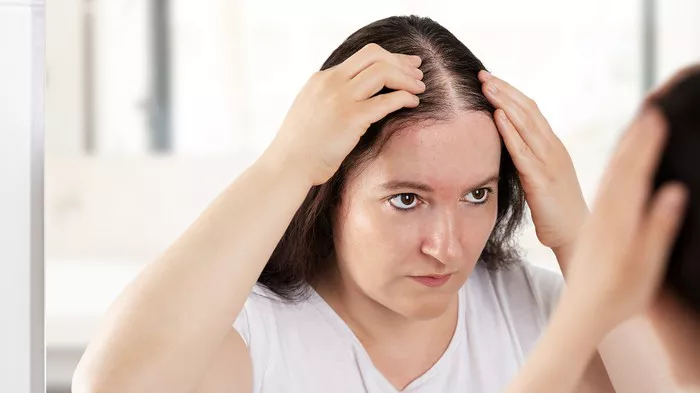Dandruff is a common scalp condition that affects many people worldwide. Characterized by flaky skin on the scalp, it can be both annoying and embarrassing. But beyond the visible flakes, many individuals are concerned about the potential link between dandruff and hair loss. The primary question on many minds is: will the hair grow back that has fallen due to dandruff? This article delves into the causes of dandruff, its relationship with hair loss, and potential treatments to help restore hair growth.
Understanding Dandruff
Dandruff is a condition that results in the shedding of dead skin cells from the scalp. While it’s normal for skin cells to die and flake off, some individuals experience an excessive amount of flaking. This can be due to several factors, including:
1. Dry Skin: One of the most common causes of dandruff is dry skin. The flakes from dry skin are usually smaller and less oily than those from other causes of dandruff.
2. Seborrheic Dermatitis: This condition is marked by red, greasy skin covered with flaky white or yellow scales. It can affect the scalp and other areas rich in oil glands, such as the eyebrows, sides of the nose, and behind the ears.
3. Malassezia: This yeast-like fungus lives on the scalps of most adults. Sometimes, it can irritate the scalp and cause more skin cells to grow. These extra skin cells die and fall off, making them appear white and flaky in your hair or on your clothes.
4. Sensitivity to Hair Care Products: Sometimes, sensitivity to certain ingredients in hair care products can cause a red, itchy, scaly scalp.
5. Other Skin Conditions: Conditions such as psoriasis and eczema can also contribute to dandruff.
Dandruff and Hair Loss
Dandruff itself does not directly cause hair loss. However, the itchiness it causes can lead to scratching. Continuous scratching can damage the hair follicles, which can result in some hair loss. Here’s how it works:
1. Inflammation: Persistent scratching can cause inflammation of the scalp, leading to a condition known as folliculitis. This inflammation can weaken hair follicles, resulting in hair loss.
2. Infection: If the scalp becomes infected due to constant scratching and breaking of the skin, it can further damage the hair follicles.
3. Hair Breakage: Vigorous scratching can lead to hair breakage. While this is not the same as hair loss from the root, it can make the hair appear thinner.
Will Hair Grow Back?
The good news is that hair loss due to dandruff is typically not permanent. Here are some steps and treatments that can help restore hair growth:
1. Treat the Dandruff: The first step is to address the dandruff itself. Over-the-counter shampoos containing zinc pyrithione, selenium sulfide, or ketoconazole can be effective. For more severe cases, a dermatologist may prescribe stronger treatments.
2. Avoid Scratching: It’s important to resist the urge to scratch your scalp. Scratching can exacerbate hair loss and lead to infections.
3. Healthy Hair Care Practices: Gentle hair care is essential. Avoid harsh chemicals and heat treatments that can further irritate the scalp. Opt for a mild shampoo and conditioner that are free of sulfates and parabens.
4. Proper Nutrition: A balanced diet rich in vitamins and minerals can support hair health. Vitamins A, B, C, D, E, and minerals such as zinc and iron are crucial for hair growth.
See Also: How to Prevent Hair Loss After Anesthesia?
5. Scalp Massages: Regular scalp massages can improve blood circulation to the scalp, which can help nourish hair follicles and promote hair growth.
6. Medical Treatments: In some cases, a dermatologist might suggest treatments such as minoxidil, which is known to stimulate hair growth.
Preventing Dandruff and Associated Hair Loss
Preventing dandruff and the hair loss associated with it involves a combination of good scalp hygiene and overall health practices:
1. Regular Hair Washing: Washing your hair regularly can help remove the flakes and prevent buildup. Use a gentle, anti-dandruff shampoo.
2. Moisturize the Scalp: If you have dry skin, keeping your scalp moisturized can help reduce dandruff. Look for shampoos and conditioners with moisturizing properties.
3. Manage Stress: Stress can exacerbate dandruff and hair loss. Practice stress management techniques such as yoga, meditation, or regular exercise.
4. Avoid Hair Products with Harsh Chemicals: Certain hair styling products can irritate the scalp. Opt for products that are gentle and formulated for sensitive skin.
5. Regular Scalp Exfoliation: Just like your face, your scalp can benefit from regular exfoliation to remove dead skin cells. Use a gentle exfoliating scrub designed for the scalp.
When to See a Doctor
If over-the-counter treatments aren’t effective, or if you notice severe hair loss, it’s important to see a dermatologist. They can determine if there’s an underlying condition that needs to be addressed and can provide stronger treatments.
Conclusion
While dandruff itself doesn’t directly cause permanent hair loss, the associated itching and scratching can lead to temporary hair loss. The hair that falls out due to these factors typically grows back once the underlying dandruff is treated and the scalp is allowed to heal. By following good hair care practices, managing stress, and seeking medical advice when necessary, you can effectively manage dandruff and promote healthy hair growth. If you’re experiencing persistent issues, consult a healthcare professional to ensure there are no underlying conditions contributing to your symptoms.


